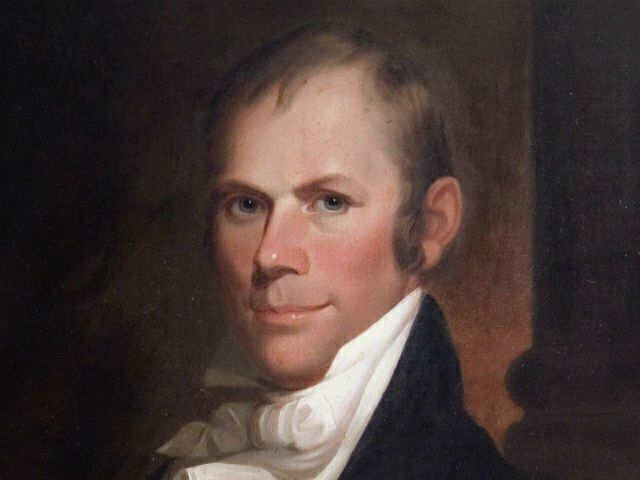Was Henry Clay Against The War?
Introducing Henry Clay
Henry Clay was one of the most prominent American politicians in the early to mid-19th century. He served in both the House of Representatives and the Senate, and also as Speaker of the House and Secretary of State (Source). Clay was an influential Speaker known for promoting the “American System” of protective tariffs and internal improvements to promote economic growth. He was also a renowned orator and leader of the Whig Party, as well as a driving force behind many impactful compromises in his efforts to preserve the Union. Clay ran for president several times but was never successful. However, his impact was still significant, earning him nicknames like “The Great Compromiser” and “The Great Pacificator.”
The War of 1812
The War of 1812 was fought between the United States and Great Britain from 1812 to 1815. There were several key causes that led to the outbreak of the war:
Impressment – The British Royal Navy was seizing American merchant sailors and forcing them into service on British ships. This violated American sovereignty and was a major source of tension (Britannica).
Trade restrictions – The British had imposed trade restrictions and blockades during the Napoleonic Wars that limited American trade with France. The U.S. contested these as violations of neutral rights (USS Constitution Museum).
American expansionism – There was a drive by some Americans, known as War Hawks, to expand U.S. territory into Canada and Florida (Library of Congress).
Some key events during the War of 1812 included:
- The burning of Washington D.C. in 1814 by British troops.
- The Battle of New Orleans in 1815, a major American victory that made Andrew Jackson a war hero.
- The defense of Fort McHenry and Baltimore that inspired Francis Scott Key to write the “Star Spangled Banner.”
- The Treaty of Ghent that ended the war in December 1814, though fighting continued for a few months after.
Henry Clay’s Initial Support for the War
Henry Clay strongly advocated for going to war with Britain in the period leading up to the War of 1812. Clay served as Speaker of the House from 1811 to 1814 and was a prominent leader of the War Hawk faction in Congress. Along with other War Hawks like John C. Calhoun, Clay pushed for declaring war against Britain in response to ongoing impressment of American sailors and interference with trade.
Clay delivered passionate speeches calling for war, denouncing Britain’s actions and arguing that war was necessary to defend America’s honor and sovereignty. In one famous speech to the House in 1811, Clay declared, “The conquest of Canada is in your power. I trust I shall not be deemed presumptuous when I state, what I verily believe, that the militia of Kentucky are alone competent to place Montreal and Upper Canada at your feet.”
As Speaker of the House, Clay forcefully steered the country toward war. According to one source, “Clay and his fellow War Hawks worked hard to build up public support for the war” (https://www.jrcigars.com/cigars/handmade-cigars/henry-clay-cigars/henry-clay-war-hawk/). Clay’s impassioned advocacy was crucial in the decision to declare war on Britain in June 1812.
Shift in Clay’s Views on the War
Though initially a staunch proponent of the War of 1812, Henry Clay grew disillusioned with the war as it dragged on without clear victory. By 1814, Clay had emerged as a leader of the “War Hawks” who had pushed for war against Britain starting in 1811. However, after years of inconclusive fighting, Clay began to reconsider (1).
In speeches on the House floor, Clay started to argue against continuing the stalemated war. He contended that the United States had successfully stood up to Britain’s aggressions, restoring national honor. Further fighting was unlikely to produce any tangible benefits. Clay now advocated for peace, asserting that the war’s aims had been achieved (2).

According to Clay, the persisting hostilities were simply imposing economic hardship and threatening liberty. He warned that the wartime measures were leading to excessive executive power and weakening republican institutions. Clay presented an alternative vision focused on westward expansion, economic development, and preserving constitutional principles (3).
(1) https://www.battlefields.org/learn/biographies/henry-clay
(2) https://www.nps.gov/articles/war-hawks.htm
(3) https://www.battlefields.org/learn/primary-sources/editorial-written-war-hawk-henry-clay-favor-war-great-britain
Clay’s Arguments Against Continuing the War
Although Clay was initially a strong proponent of the War of 1812, he gradually began to have reservations about the conflict as it dragged on. By 1814, Clay was arguing against continuing the war effort, citing several key reasons:
First, Clay pointed to the mounting economic costs of the war. Military spending had skyrocketed, trade had declined, and the country was racking up debt. Clay felt the financial burden was becoming too much for the young nation to bear (1).
Second, Clay argued the American troops were unprepared for a prolonged conflict. The US military was disorganized and ill-equipped at the start of the war. Three years in, it was still struggling to assemble adequate forces and supplies for engagements with the British (2).
Finally, Clay contended there were no clear objectives for continuing to fight. The key American grievances that led to declaring war – interference with trade and the impressment of sailors – had faded as issues. With Canada proving difficult to conquer, Clay saw no strategic reason to keep fighting (1).
Given these drawbacks, Clay pushed for diplomatIc efforts to end the conflict. He worried continuing an unfocused war would only bring more hardship for the country.
Clay’s Alternative Vision
As the War of 1812 dragged on, Henry Clay began to shift his views and advocate for diplomatic solutions rather than continuing the war effort. According to the Band of Pioneers Museum, Clay pushed for an honorable peace and refocusing on domestic issues like building infrastructure and developing American manufacturing.
In Congress, Clay argued that the war was becoming costly and unproductive. He suggested that the United States should seek a diplomatic solution that addressed the original grievances that led to the war, such as British impressment of sailors and interference with American ships. Clay believed that continuing an unfocused war would waste lives and resources that could be better spent on developing the American economy.
Clay wanted the United States to withdraw from war and focus on his “American System” of building roads, canals, and other infrastructure to unify the nation and promote commerce. As this Senate article explains, Clay viewed domestic improvements as vital to American prosperity and independence.
While Clay had initially championed the war, his pragmatism led him to advocate for diplomatic solutions. He believed America’s true interests lay in developing its strength domestically rather than fighting a costly war of attrition abroad.
The Treaty of Ghent
As the war dragged on, Henry Clay grew increasingly vocal in his calls for a negotiated peace. According to History.com, Clay served as one of five American delegates who negotiated the Treaty of Ghent with the British that ended the War of 1812 (https://www.history.com/topics/19th-century/treaty-of-ghent). Clay brought his considerable skill at diplomacy and persuasion to the negotiations. His presence helped lend legitimacy to the American delegation, as he was an outspoken critic of the war.
On December 24, 1814 the Treaty of Ghent was signed, formally ending the War of 1812. The treaty essentially restored the status quo from before the war. As noted by the National Archives, key provisions included the British withdrawal from the Northwest Territory and a pledge by both countries to work toward abolishing the slave trade (https://www.archives.gov/milestone-documents/treaty-of-ghent). The treaty was seen as an honorable peace for both sides that avoided placing blame. Henry Clay’s role in the negotiations helped strengthen his reputation as a distinguished statesman and diplomat.
Lasting Impact on Clay’s Career
The War of 1812 had a significant impact on Henry Clay’s political career. Though he initially supported the war as a leading War Hawk, his eventual opposition burnished his credentials as a pragmatic statesman and deal-maker.
Clay’s leadership during the debates over declaring war demonstrated his persuasive abilities and cemented his reputation as an influential Congressman. However, Clay’s willingness to later acknowledge the war’s failures and advocate for peace showed him to be reasonable and open to compromise. This built Clay’s stature as a thoughtful, flexible statesman.
In particular, Clay’s key role negotiating the Treaty of Ghent proved his skills as a diplomat and deal-maker. By helping broker an honorable peace, Clay emerged from the war as an increasingly prominent national figure. His nuanced handling of the war as both a leading proponent and critic demonstrated Clay’s political acumen.
While Clay’s early war support opened him to some criticism, his pragmatism in ultimately opposing its continuation enhanced his reputation. This set the stage for Clay’s future leadership on major national issues like the Missouri Compromise. The War of 1812 was a formative experience that helped establish Clay as a distinguished statesman and negotiator.
Clay’s Evolving Perspective
Initially, Henry Clay was a strong proponent for going to war with Britain. As Speaker of the House, Clay pushed for a declaration of war in 1812, earning him the nickname “War Hawk.” Clay saw the war as necessary to defend America’s honor and neutral trading rights, which had been violated by Britain’s actions like impressment of American sailors and blockading U.S. ports [1].
However, as the war dragged on with mixed results, Clay’s views shifted. By 1814, it was becoming clear the war would be difficult to win militarily. Clay advocated for seeking a diplomatic resolution and negotiated the Treaty of Ghent to end the war in 1815. He sought an “honorable peace” that would restore relations with Britain without major concessions [2].
This evolving perspective demonstrated Clay’s pragmatism and ability to adjust his positions. While initially aggressive, Clay pivoted to prioritize diplomatic solutions when continued warfare seemed futile. This flexibility would characterize his long political career of brokering major national compromises.
Conclusion
Henry Clay’s relationship with the War of 1812 was complex and evolved over time. Initially, Clay was a vocal proponent of going to war with Britain, believing it was necessary to defend America’s honor and put an end to British violations of American sovereignty. As a leader of the War Hawks in Congress, Clay played an instrumental role in building support for the declaration of war in 1812.
However, as the war dragged on, Clay grew disillusioned and began speaking out against continuing the conflict. He criticized the Madison administration for how it was prosecuting the war and argued that the aims of the war had been achieved, so it was not worth the ongoing costs in lives and economic damage. In 1814, Clay helped negotiate the Treaty of Ghent, which ended the war and returned relations between the U.S. and Britain to a peaceful footing.
While Clay shifted from war advocate to peace broker during the War of 1812, he emerged as a prominent national political figure. The war set him on a path to becoming one of the most influential statesmen of the 19th century. Clay’s evolving perspective on the War of 1812 reflects his pragmatic approach to politics and governing.[1]





